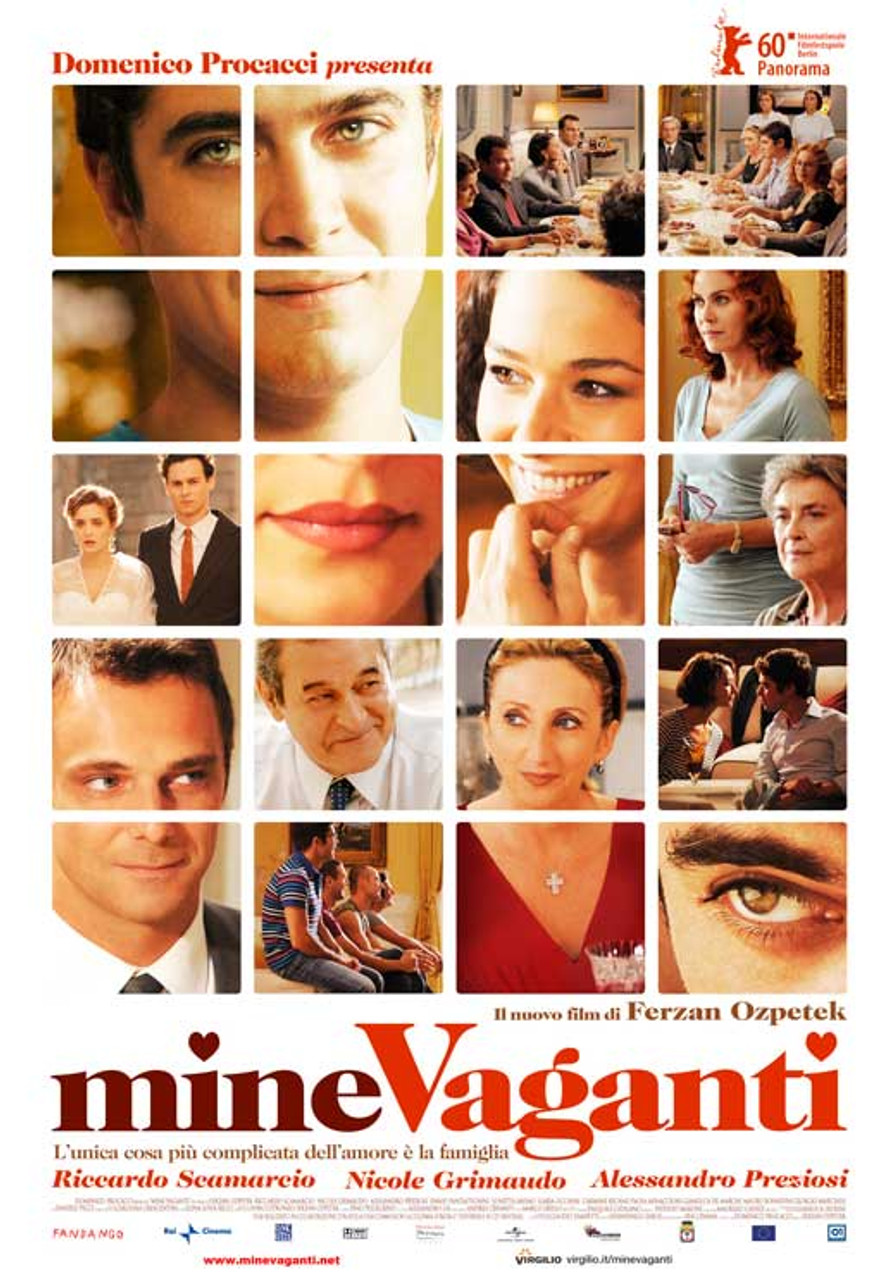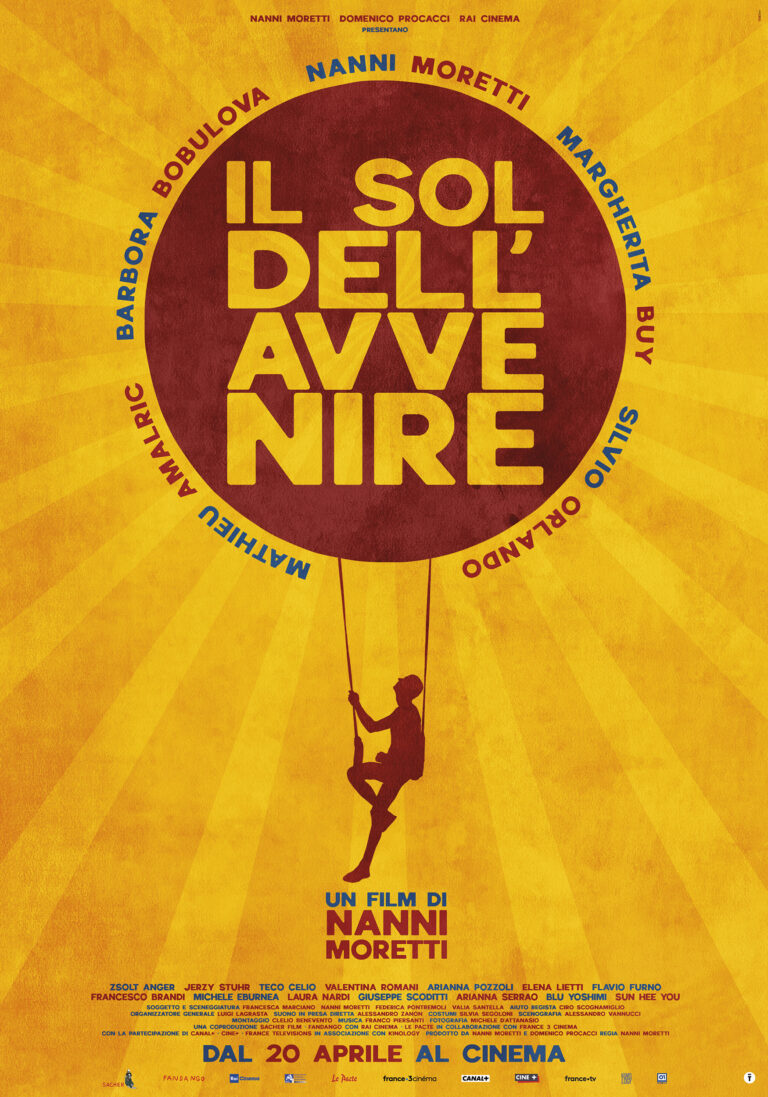
Loose Cannons (Mine Vaganti), directed by Ferzan Özpetek, is a 2010 Italian dramedy that artfully balances humor and poignancy while exploring themes of identity, tradition, and familial expectations. With a stellar cast led by Riccardo Scamarcio, Alessandro Preziosi, and Nicole Grimaudo, the film captures the complexities of family dynamics and the struggles of self-expression in a traditional Italian setting.
Set in the picturesque town of Lecce in Southern Italy, Loose Cannons weaves together vibrant characters, witty dialogue, and heartfelt moments to create a cinematic gem that has captivated audiences worldwide.
Table of Contents
- Introduction to Loose Cannons
- Plot Summary
- Themes Explored
- Tradition vs. Modernity
- The Complexity of Coming Out
- Family and Acceptance
- Key Characters and Performances
- Ferzan Özpetek’s Vision and Direction
- Cinematography and Setting
- Music and Atmosphere
- Reception and Awards
- Frequently Asked Questions
1. Introduction to Loose Cannons
Released in 2010, Loose Cannons (Mine Vaganti) is a delightful yet thought-provoking film that tackles the tension between tradition and individuality. Ferzan Özpetek, known for his ability to blend comedy with emotional depth, delivers a story that resonates universally while celebrating the beauty of Italian culture and family life.
The film’s clever script, engaging characters, and stunning visuals make it a standout in contemporary Italian cinema, with a message that transcends cultural and geographical boundaries.
2. Plot Summary
Tommaso Cantone (Riccardo Scamarcio) returns to his conservative family in Lecce with a plan to reveal his homosexuality and escape the family’s pasta business to pursue his dreams of becoming a writer. However, his plans are derailed when his older brother, Antonio (Alessandro Preziosi), unexpectedly comes out during a family dinner, throwing the family into chaos.
Their father, Vincenzo (Ennio Fantastichini), a traditional patriarch, is outraged and suffers a heart attack, leaving Tommaso unable to share his own secret. As the family struggles to adjust, Tommaso must navigate the expectations of his family, his burgeoning relationship with Alba (Nicole Grimaudo), and the presence of eccentric relatives, including his supportive grandmother (Ilaria Occhini).
What unfolds is a humorous and heartfelt journey of self-discovery, love, and the redefinition of family values.
3. Themes Explored
Tradition vs. Modernity
The Cantone family represents a microcosm of the clash between deeply rooted traditions and the evolving values of modern society. The film highlights the tension between maintaining appearances and embracing change.
The Complexity of Coming Out
Tommaso and Antonio’s stories reflect the courage and challenges of coming out, especially in a conservative setting. The film sensitively portrays the nuances of acceptance, rejection, and the desire for authenticity.
Family and Acceptance
At its heart, Loose Cannons is a story about family and the unconditional love that often emerges in unexpected ways. The film emphasizes the importance of understanding and supporting one another, even when values and beliefs differ.
4. Key Characters and Performances
Riccardo Scamarcio as Tommaso Cantone
Scamarcio delivers a compelling performance as Tommaso, capturing the character’s internal struggle with sincerity and charm. His portrayal balances vulnerability and determination, making him a relatable protagonist.
Alessandro Preziosi as Antonio Cantone
Preziosi shines as Antonio, whose brave decision to come out serves as a catalyst for the story’s events. His nuanced performance adds depth to the film’s exploration of identity.
Ennio Fantastichini as Vincenzo Cantone
Fantastichini masterfully portrays the family patriarch, Vincenzo, whose initial anger and disappointment gradually give way to moments of introspection and growth.
Ilaria Occhini as Nonna Cantone
As the family’s matriarch, Occhini’s character provides wisdom, humor, and support, serving as a bridge between tradition and progress.
5. Ferzan Özpetek’s Vision and Direction
Özpetek’s direction brings warmth and authenticity to Loose Cannons. Known for his ability to blend comedy and drama, Özpetek creates a narrative that is both entertaining and emotionally resonant. His sensitivity in handling LGBTQ+ themes and family dynamics adds a layer of depth that elevates the film beyond a simple comedy.
6. Cinematography and Setting
The film’s cinematography, led by Maurizio Calvesi, beautifully captures the sunlit streets and historic architecture of Lecce. The vibrant visuals, coupled with the lush countryside, create an idyllic backdrop that enhances the film’s charm.
7. Music and Atmosphere
The soundtrack, featuring a mix of classical and contemporary music, complements the film’s tone and emotional beats. Patty Pravo’s haunting rendition of “Pensiero Stupendo” stands out as a memorable piece that underscores key moments in the story.
8. Reception and Awards
Loose Cannons received widespread acclaim for its engaging storytelling, strong performances, and balanced tone. The film earned several awards, including:
- The Audience Award at the Tribeca Film Festival.
- A Nastro d’Argento for Best Supporting Actress (Ilaria Occhini).
- Recognition at international film festivals for its heartfelt portrayal of LGBTQ+ themes.
9. Frequently Asked Questions
What is Loose Cannons about?
The film follows Tommaso Cantone as he navigates family expectations, identity, and love in a conservative Italian family, while also addressing the challenges of coming out.
Who directed Loose Cannons?
The film was directed by Ferzan Özpetek, known for his ability to blend comedy and drama with cultural depth.
Is Loose Cannons a comedy or drama?
The film is a dramedy, skillfully balancing humor and poignant moments to explore themes of family and self-acceptance.
Where is the film set?
The story takes place in Lecce, a charming town in Southern Italy, whose beauty serves as a stunning backdrop to the narrative.
What are the film’s main themes?
Loose Cannons explores themes of family, tradition vs. modernity, identity, and the courage to be true to oneself.
Why is the film significant?
The film is celebrated for its authentic and heartfelt exploration of LGBTQ+ themes, its vibrant portrayal of Italian family life, and its universal message about acceptance and love.
Conclusion
Loose Cannons (Mine Vaganti) is a delightful blend of humor and heart, offering a fresh perspective on the complexities of family and identity. Ferzan Özpetek’s masterful direction, coupled with outstanding performances and breathtaking visuals, creates a film that is both entertaining and thought-provoking.
By addressing universal themes of acceptance and the evolving definition of family, Loose Cannons continues to resonate with audiences, making it a standout in contemporary Italian cinema.





